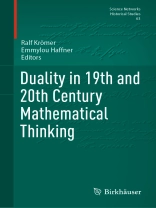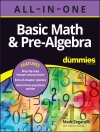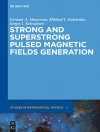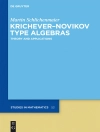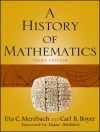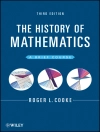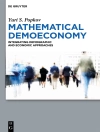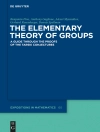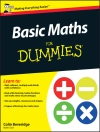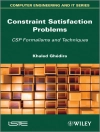This volume brings together scholars across various domains of the history and philosophy of mathematics, investigating duality as a multi-faceted phenomenon. Encompassing both systematic analysis and historical examination, the book endeavors to elucidate the status, roles, and dynamics of duality within the realms of 19th and 20th-century mathematics. Eschewing a priori notions, the contributors embrace the diverse interpretations and manifestations of duality, thus presenting a nuanced and comprehensive perspective on this intricate subject.
Spanning a broad spectrum of mathematical topics and historical periods, the book uses detailed case studies to investigate the different forms in which duality appeared and still appears in mathematics, to study their respective histories, and to analyze interactions between the different forms of duality. The chapters inquire into questions such as the contextual occurrences of duality in mathematics, the influence of chosen forms of representation, the impact of investigations of duality on mathematical practices, and the historical interconnections among various instances of duality. Together, they aim to answer a core question: Is there such a thing as duality in mathematics, or are there just several things called by the same name and similar in some respect? What emerges is that duality can be considered as a basic structure of mathematical thinking, thereby opening new horizons for the research on the history and the philosophy of mathematics and the reflection on mathematics in general.
The volume will appeal not only to experts in the discipline but also to advanced students of mathematics, history, and philosophy intrigued by the complexities of this captivating subject matter.
Jadual kandungan
Preface.- Chapter 1. Ralf Krömer, Emmylou Haffner: Introduction.- Part I. The 19th century heritage.- Chapter 2. Michael Friedman: On “contour apparent”, “courbe de contact” and ramification curves: Duality between a principle and a tool.- Chapter 3. Juan Luis Gastaldi: De Morgan’s De Morgan’s Laws: Duality in the Emergence of Formal Logic.- Chapter 4. Dirk Schlimm: The emergence of duality in 19th-century algebra of logic.- Chapter 5. Emmylou Haffner: Duality as a guiding light in the genesis of Dedekind’s Dualgruppen.- Chapter 6. Erhard Scholz: From Grassmann complements to Hodge-duality.- Part II. From topology to groups.- Chapter 7. Stephan Oltmanns, Ralf Krömer, Klaus Volkert: Duality theorems in topology.- Chapter 8. Ralf Krömer: The historical development of Pontrjagin duality.- Chapter 9. Harald Kümmerle: Tannaka Tadao’s 1938 paper on the duality of noncommutative topological groups and its historical background.- Chapter 10. Christophe Eckes: Philosophical and mathematical duality in Albert Lautman’s work.- Part III. Functional analysis and related fields.- Chapter 11. Alessa Waldvogel: The development of dual spaces in functional analysis.- Chapter 12. Frédéric Jaëck: Duality in Banach’s 1929 work on functionals.- Chapter 13. Ralf Krömer: Marshall Stone and duality: from differential equations to Boolean algebras.- Chapter 14. Ralf Krömer: Duality à la Bourbaki.- Chapter 15. Jesper Lützen: Duality and Distributions: An Application of Topological Vector Spaces.- Part IV. The post-war outlook.- Chapter 16. Tinne Hoff Kjeldsen: From duality in mathematical programming to Fenchel duality and convex analysis: Duality as a force of inspiration in the creation of new mathematics.- Chapter 17. Jean-Pierre Marquis: An Historical Perspective on Duality and Category Theory.- List of abbreviations.- Bibliography.- Author index.
Mengenai Pengarang
Ralf Krömer is Professor of mathematics and its didactics at the Bergische Universität Wuppertal. His research focuses mainly on the history of mathematics from the late 17th to the 20th century. His research interests include in particular historical themes around Leibniz, Poincaré, the Bourbaki group, structural mathematics, and category theory, but also philosophical aspects of these topics as well as the use of the history of mathematics in its teaching.
Emmylou Haffner is a CNRS research scientist at the Institut des Textes et Manuscrits Modernes (École Normale Supérieure). Her research focuses on the history of mathematics in the 19th and 20th centuries, with particular interest in manuscripts and genetic criticism.
